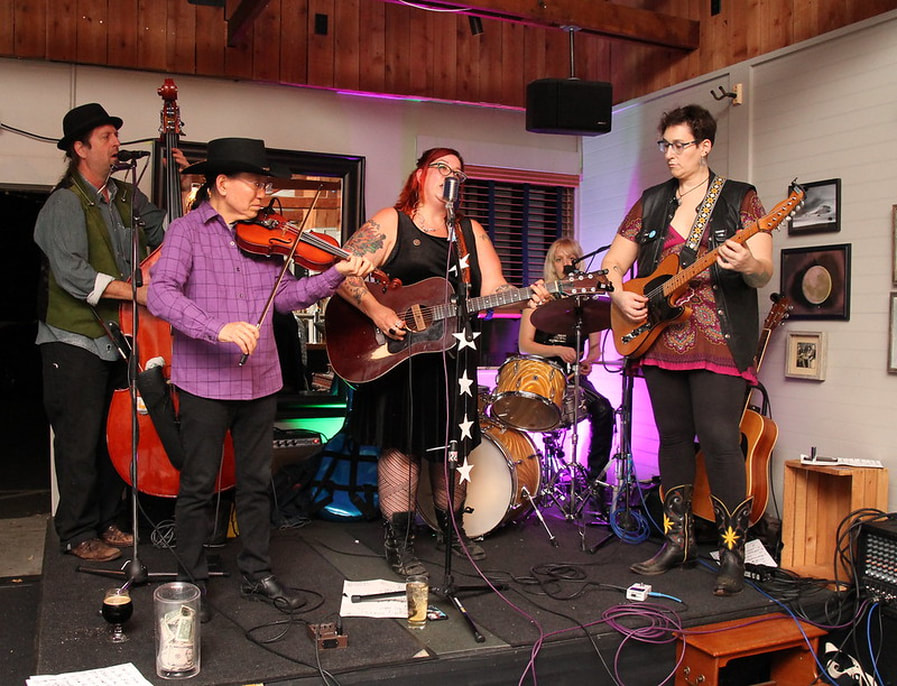Why Listen to Country Music?
A Podcast to Get Started
|
Malcolm Gladwell goes to Nashville to talk with Bobby Braddock, who has written more sad songs than almost anyone else. What is it about music that makes us cry? And what sets country music apart? This podcast proposes, as I do below, that the storytelling does it. (Jay McD)
|
What's to Like and Not Like about Country Music
It always tells a story.When most people hear the words “country music” they draw the assumption that every song is about drinking a beer or a sappy love song, but that is far from what country music really is. It's sincere at its best.It can be explained in just one word: sincerity. When a hillbilly sings a crazy song, he feels crazy. When he sings, 'I Laid My Mother Away,' he sees her a-laying right there in the coffin. He sings more sincere than most entertainers because the hillbilly was raised rougher than most entertainers. You got to know a lot about hard work. You got to have smelt a lot of mule manure before you can sing like a hillbilly. (Hank Williams (as cited in Fall and Redemption, see button below.) I'm tired of this "white southern pride" thing.I don't like the fact that country music is so white. And even though I'm a southerner I'm getting really tired of this southern pride thing. I hope this can change. It seems to me like so often hip-hop and rap tell the stories of black friends, and country tells the stories of working class white friends. It appeals so middle class whites who like to think they are working class, when really they're not. They just want to feel "authentic." I want all of this to change. I like it when Brad Paisley and LL Cool J begin to bridge the gap. I know it was controversial: maybe too soft on the history of southern racism. But it was a start. I'm looking for more country rap.. That's my thing. (College student, 2018) |
It's about real people not perfect people.Country music expresses not only the hopes and longings of average people but also their frailties and failed dreams . . . the music is consumed with the fragility of relationships and the evanescence of life. Above all, the music breathes with the contradictions implicit in our lives. Indeed, the tension that gives country music its power and that defines the stylistic essence of such great singers of Hank Williams, Sr., George Jones, and Merle Haggard, arises from the struggle to voice the contending irresolvable impulses of the human heart. It takes you into the republic of stories.I like most all popular music, including hip hop and rap, electronic music, and metal. But I find myself turning to country music when I need to hear a story. Rhythm and Blues, too. I don't like the "bro" country music that's all about male fantasies. I like the real country music that tells me a story about somebody's life, and sometimes my own. Everything's not a number, you know. And not even a beat or a rhyme. It's a story. For a class I read a book by Arlene Goldbard called The Republic of Stories. She says that w live in a culture obsessed with data (the culture of Datastan) and that we need a culture that respects stories (the Republic of Stories.) Country music takes me into a republic of stories. (College student, 2018) I think "bro" country is infantile but really like feminist country.I can't stand Bro-Country: songs that champion "drinking Tecate, truck-tailgate parties, and girls in tied-up t-shirts. Women in Bro-Country music "are perfect Barbie dolls who are just supposed to sit there and look hot. They don't get a character or a personality in these songs." I hate this. I like Stripes by Brandy Clark and Follow Your Arrow. And I'm looking for some good black country rap, too. (College student, 2018) |
But some of it is just really, really good.
Some of it is very sophisticated musically. I'm a guitarist, so I know. It's not just about three chords and a story. Have you ever listened to Chet Atkins play guitar? He's country. Have you ever been to Nashville and listened to the thousands of musicians on the streets and in the clubs? They're country. Have you listened to Dolly Parton and felt the range of her voice? Or to John Prine? Truth is: in a time when rock is almost dead and so much contemporary music is obsessed with beat an rhythm, country music is carrying the traditions of melody and, like rap, lyrical subtlety. Despite the canned nature of top forty country, some of it is just really, really good. Give it a try. (College student, 2018). |
Meet Chet Atkins |
Give it a Try
|
|
|
|
|
|
|
|

